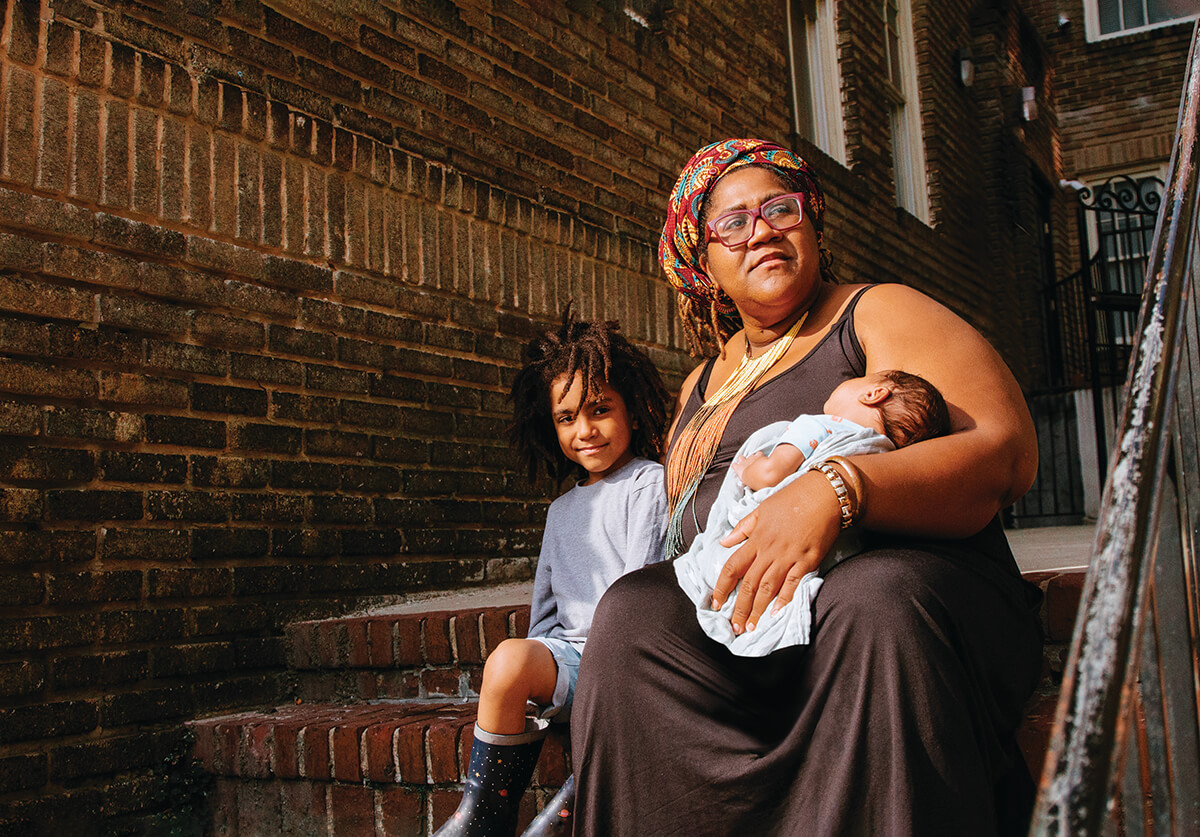Education & Family
GameChanger: Ana Temple Rodney
We catch up with the executive director of MOMCares.

Ana Temple Rodney grew up bouncing between Woodlawn and her grandparents’ backyard in Glen Burnie, where she would create herbal concoctions out of dirt, grass, and weeds. Now, as a trained doula and mother of two young boys, she’s healing others through MOMCares, a nonprofit designed to help under-supported mothers by providing doula care, self-care rituals, and advocacy, as well as help for the entire family unit through her Rising Mama organization.
In 2014, you gave birth to a premature son who spent six months in the NICU.
Aiden is now a bubbly, active, sweet, smart, and sensitive 6 year old. My traumatic experience turned all previous notions of motherhood on its head. Just as there is no manual on motherhood, there is no manual on how to offer support. My identity as a “strong Black woman” made it hard for people to support me, as some assumed I didn’t need help. There were so many lessons that I awakened to in those moments, both painful and joyous.
How did you turn those experiences into work?
In 2018, when my older sister passed away from complications that began in her postpartum period, I realized that the narrative around mothers, particularly Black mothers, not mattering [to the medical system] after their children were born was toxic. It was proving to be fatal and traumatic. I began the work of MOMCares and Rising Mama as a way to right the wrongs. Being a longtime practicing doula, I experienced birth and postpartum regularly, but it was my own struggles that really illuminated all the opportunities for more intentional support.
What impacts your work the most?
My role as a mother keeps me grounded in the mission and vision of what the programs are supposed to embody. My role as a single mother allows me to sit in the driver’s seat of what may be needed and how it can affect a household. The journey of motherhood is with you forever, and support is needed at every level and stage.
Black women are three to four times more likely to die from pregnancy-related causes than white women, according to the Centers for Disease Control and Prevention. How do we make care more safe and equitable?
I have seen the difference in treatment, microaggressions, assumptions about partners, medical staff downplaying pain, assuming people are drug seeking, taking longer to address requests, pushing formula instead of breastfeeding, assuming income and education without any real indicators. In order to improve treatment and safety, we need more representation in the medical setting, sensitivity training, as well as bias and discrimination training, better eyes on how medical staff are modeling for medical students, and more incorporation of holistic practices in the medical setting.
What has the feedback been from families you have interacted with through your programs?
My mamas are always so thankful to have the support, and many of them refuse to let us go. We become family. We just received an email from one of our community partners that conveyed thanks from a mama we are serving who said we were the only ones who responded to her needs. Which made me sad. But also invigorated me to keep going with the work. The answer is yes.